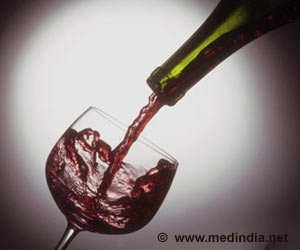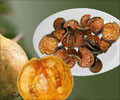Highlights
- Resveratrol, a natural compound in red wine, skin of red grapes may reduce artery stiffness in Type 2 diabetics.
- Arteries in the body tend to become stiff due to aging, high blood pressure, diabetes.
- Aortic stiffness was reduced in those who consumed 300 mg of resveratrol, a compound present in red wine, grapes.
Tests were performed after patients consumed daily doses of 100 mg/day of resveratrol for two weeks followed by 300 mg/day of resveratrol for two weeks and after comparable placebo dosing for a total of four weeks.
Participants were also tested on several other measures of their blood vessels' ability to relax and expand as needed to accommodate changes in blood flow, an important indicator of healthy blood vessel function.
Key Findings
- In the overall study group, there was a trend toward reduced aortic stiffness with resveratrol treatment; however, the change was not statistically significant.
- In a subset of 23 patients with high arterial stiffness at the start of the study, the 300 mg dose of resveratrol reduced aortic stiffness by 9.1 percent
- Aortic stiffness was reduced to a lesser extent, 4.8 percent, in 100 mg group while stiffness increased with the placebo treatments.
Although they detected increased SIRT1 activity after resveratrol supplementation, the difference was not statistically significant.
The author suggests the need for studies with longer treatment are needed to test the effects of a daily resveratrol supplement on vascular function.
Resveratrol - the Powerful Antioxidant
- Helps address hormone imbalance in women with polycystic ovary syndrome (PCOS).
- Improves the body's ability to use insulin and potentially lower the risk of developing diabetes.
- Protect cells against damage from aging.
- Improves learning and memory ability by reducing oxidative stress in vascular dementia.
- Exerts a protective effect from noise-induced hearing loss.
- Naomi M. Hamburg et al., Can the antioxidant resveratrol reduce artery stiffness in diabetics?, American Heart Association ATVB-PVD Scientific Sessions 2017.
Source-Medindia
















